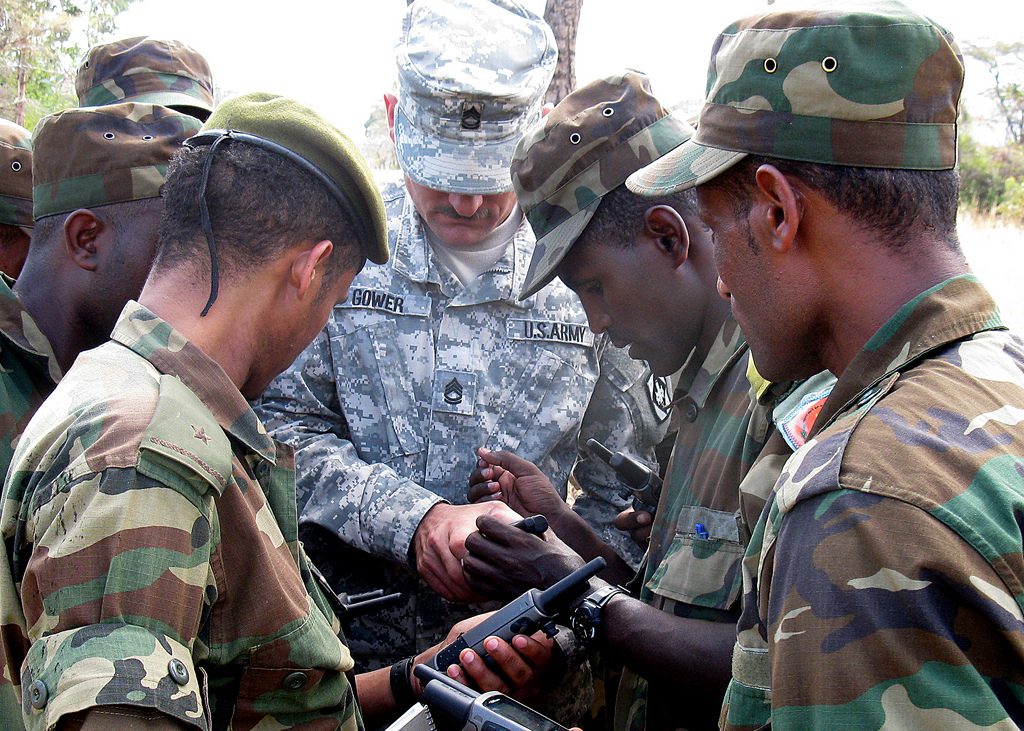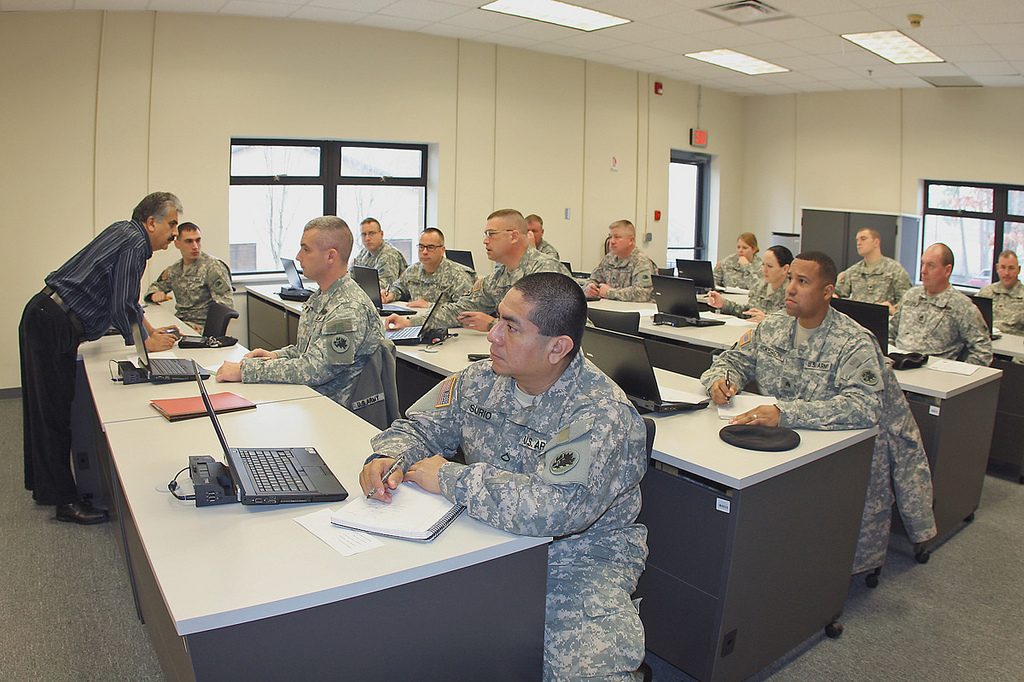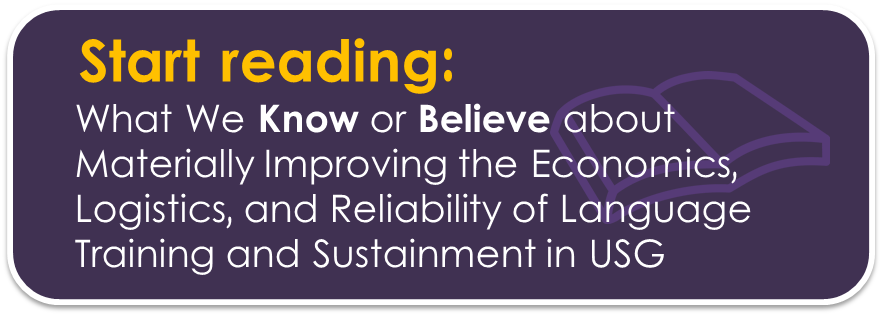Why Language Matters for the U.S. Military Posted by Transparent Language on Apr 27, 2016 in Archived Posts
The U.S. is notoriously less language-capable than our allies and adversaries. This gap in training—which can’t adequately be filled by contract interpreters or machine translation—results in unacceptable risk and limited opportunities.
In an era of persistent conflict and powerful cooperation, the U.S. military is recognizing the need for better language capabilities across the spectrum. A Soldier at a traffic control point may need an arsenal of only a few dozen memorized words and phrases like “Stop.” or “I need to inspect your car.” A Foreign Area Officer advising foreign military officials or a Military Cryptologic Linguist transcribing foreign communications must be far more effective in a language, at least a 3/3/3 on the ILR scale.
In both scenarios, effective language training is paramount to a successful mission. Even the Government Accountability Office acknowledged that “language training is as important as marksmanship” for modern-day service members to achieve a number of goals:
Building International Partnerships
The U.S. military isn’t always focused on “the enemy”. More often, military leaders are communicating with partner nations and organizations. Did you know the U.S. contributes troops and military advisers to UN peacekeeping missions worldwide, from national security reform in Liberia to natural disaster relief in Haiti? The U.S. military also responds to natural disasters worldwide, most recently assisting in rescue efforts after the earthquakes in Japan in April 2016. Military linguists trained in Japanese were crucial in coordinating the two forces.
Army officer Morgan Smiley explained the importance of building partnerships to TIME magazine, saying language skills “may lead to more effective and efficient techniques for building the capacity of our current and future partners and reduce the need for deployments of robust US forces.”
Gaining Local Support
For overseas missions, both peacekeeping efforts and wartime deployments, troops need to operate within the local culture. History indicates that support of the local population is critical to mission success. Language training prepares troops to communicate with locals and be sensitive to their culture.
Lt. Col. John Newman recognized that the military cannot “force the American model on another country; we want to work within their culture. By understanding their language and culture, we’re able to do things that don’t offend them, can achieve goals by avoiding conflict.”
Supporting Other Federal Agencies
The Defense Language Institute Foreign Language Center (DLIFLC) is the military’s premier culture-based language school, providing instruction in more than two dozen languages. What many don’t know is that the center trains military linguists to serve other federal agencies, including the DEA and FBI, to whom language skills are equally critical.
To achieve these goals, none of the traditional substitutes for personal proficiency (machine translation, contract interpreters, etc.) can achieve what is needed for a leading world power in military, diplomacy, intelligence, and security. Despite the overwhelming need, the risk to America’s language programs is very real. That’s why Transparent Language is transforming the economics of language learning to provide more reliable, effective, and cost-efficient language training to U.S. military members*.
To learn more about our work and what we’ve learned along the way, download our new white paper: What We Know and Believe about Materially Improving the Economics, Logistics, and Reliability of Language Training and Sustainment in USG

Build vocabulary, practice pronunciation, and more with Transparent Language Online. Available anytime, anywhere, on any device.








Leave a comment: